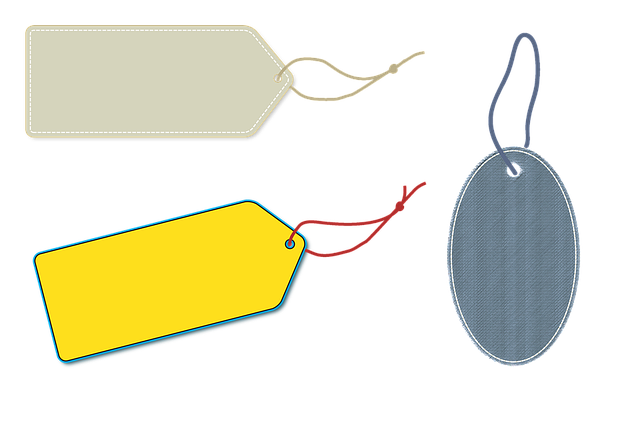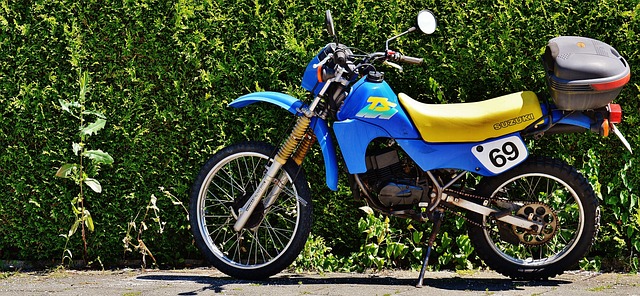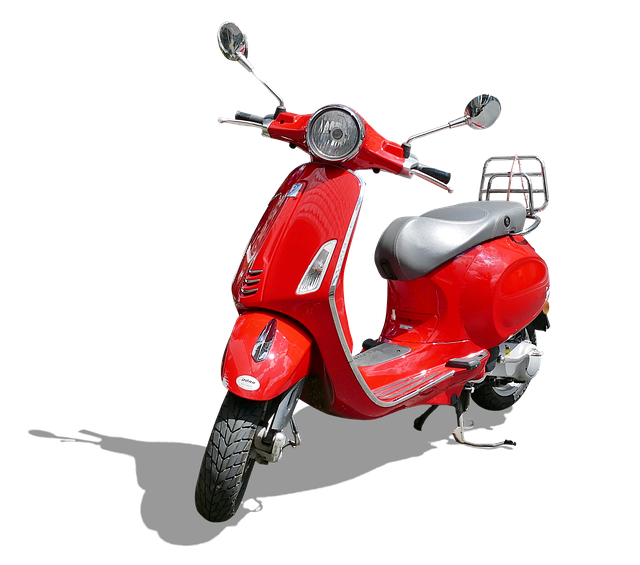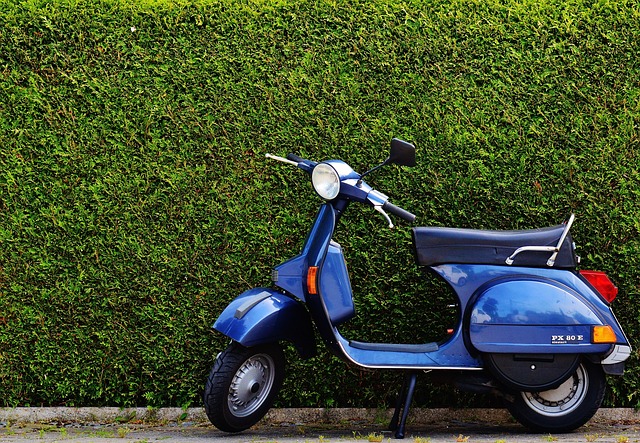Before purchasing mopeds for sale, understand that licensing requirements vary globally, with age, residency, vehicle type, and speed influencing restrictions. The process is generally straightforward, but checking local laws and regulations is crucial to avoid fines and legal issues. Temporary or permanent licenses cater to short-term or long-term use, respectively, while proper training, testing, and documentation ensure safe operation. Safety measures like helmet usage, maintenance, reflective gear, and defensive riding skills are essential for a positive moped ownership experience.
“Unleash your freedom with mopeds! This comprehensive guide unravels the simple licensing requirements for these versatile vehicles, demystifying the process for both new and experienced riders. From understanding moped licensing basics to navigating regional variations, we equip you with knowledge.
Discover who needs a license, explore different types, and learn the step-by-step process of obtaining one. Stay updated on license validity and essential documentation. Additionally, we offer tips for safe riding, ensuring you’re prepared when browsing mopeds for sale or hitting the road.”
Understanding Licensing for Mopeds: An Overview

Understanding licensing requirements for mopeds is essential, especially if you’re considering purchasing one of these compact and convenient vehicles. In many regions, mopeds are categorized differently from motorcycles, with distinct rules and regulations governing their use. For instance, in some areas, mopeds for sale may be exempt from certain licensing constraints, making them more accessible to buyers. This often depends on factors like speed, engine capacity, and maximum power output.
Licensing for mopeds usually involves a simple process that typically requires the rider to possess a valid driver’s license and complete a basic training course. Unlike motorcycles, mopeds may not demand specialized licensing or extensive training due to their lower performance specifications. This makes them an attractive option for those seeking affordable transportation without the complexity of full motorcycle licensing. Always consult local laws and regulations when exploring mopeds for sale to ensure compliance with your area’s specific requirements.
Who Needs a License to Ride a Moped?

In many regions, individuals who wish to ride a moped for personal or even commercial purposes need to obtain a license. The requirement often depends on various factors such as age, residency, and the type of vehicle. For instance, in some areas, those under 18 years old might be prohibited from operating a moped without proper licensing. Even for adults, certain types of mopeds—especially high-performance or electric models—may demand specialized licenses to ensure safety on the roads.
When considering mopeds for sale, it’s crucial to understand these licensing requirements beforehand. Obtaining the right license not only ensures legal compliance but also demonstrates a commitment to road safety. It’s essential to check local laws and regulations to determine who exactly needs a license to ride a moped, as well as the specific steps to obtain such a license, including any necessary training or testing.
Types of Licenses and Their Validity

When considering purchasing mopeds for sale, understanding the types of licenses required is essential for a seamless experience. There are typically two main categories: temporary and permanent licenses. Temporary licenses are ideal for short-term use or trial periods, offering flexibility and cost-effectiveness for those exploring the moped market. On the other hand, permanent licenses are designed for long-term ownership and usage, providing a more comprehensive legal framework for regular moped riders.
The validity of these licenses varies depending on local regulations. Some regions may have fixed durations, such as one or two years, after which renewal is necessary. Others might link license validity to certain conditions, like successful safety inspections or proof of insurance. It’s crucial to check with your local transportation authority for specific guidelines regarding moped licensing to ensure compliance and avoid any legal complications.
Requirements for Obtaining a Moped License

Obtaining a license to drive a moped is typically a straightforward process, especially compared to licensing for motor vehicles. The requirements vary slightly by region, but generally, you must be at least 15 years old (or younger in some areas with parental consent) to operate a moped on public roads. Unlike cars, mopeds are often categorized as motorized bicycles and may have less stringent registration and insurance needs.
Before hitting the streets, prospective riders should familiarize themselves with local traffic laws. A driver’s education course is not always mandatory, but it can be beneficial for new licensees. When buying a moped, whether from a dealer or private seller, ensure it complies with safety standards and has the necessary documents, including proof of age and identification. Many areas also require a basic knowledge test to demonstrate an understanding of road rules, especially when operating a two-wheeled vehicle like a moped for sale.
Documenting and Keeping Your License Up-to-Date

When you’re in the market for mopeds for sale, ensuring your license is up-to-date is a crucial step. Keeping your licensing documentation current is essential to avoid legal complications and fines. Regularly review and renew your license as required by local regulations, which may vary depending on your region. This process typically involves submitting an application, providing necessary proof of identity, and paying the associated fees.
Maintaining an organized system for tracking license expiration dates and renewal deadlines is beneficial. Consider setting reminders or using online tools to stay informed. Keeping your license current not only allows you to legally operate mopeds but also demonstrates your commitment to following traffic rules, ensuring a safer experience for yourself and others on the road.
Differences in Licensing Rules Across Regions

The licensing requirements for mopeds for sale can vary significantly across different regions, leading to a diverse landscape of regulations. What is permissible in one country might be heavily restricted in another. For instance, some areas have straightforward processes involving a basic license or registration, while others demand more extensive documentation and examinations. These differences are often shaped by local laws, road safety concerns, and cultural norms.
Navigating these variations can be challenging for both sellers and buyers. Sellers must stay informed about the specific rules in their area to ensure compliance and avoid legal pitfalls. Buyers, on the other hand, need to understand these regulations to make informed decisions when purchasing mopeds for sale, ensuring they meet all necessary requirements from the outset.
Additional Tips for Safe Riding: Beyond the License

When considering purchasing a moped for sale, it’s crucial to understand that obtaining a license is just the beginning. For a safe riding experience, there are several additional tips to keep in mind. First, always wear a properly fitted helmet and protective gear; this is non-negotiable for your safety. Regular maintenance of your moped is essential; ensure you check tire pressure, brake functionality, and engine oil levels before every ride.
Staying visible on the road is another critical aspect; use reflective clothing, especially during low-light conditions or night riding. Remember to always follow traffic rules, signal your turns, and maintain a safe distance from other vehicles. Additional training or courses can also be beneficial, as they often provide valuable insights into defensive riding techniques and local traffic laws.
